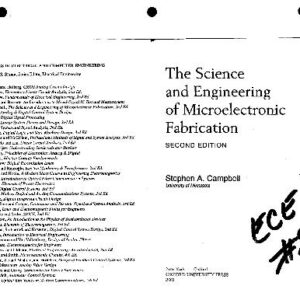Metabolic engineering is a new field with applications in the production of chemicals, fuels, materials, pharmaceuticals, and medicine at the genetic level. The field’s novelty is in the synthesis of molecular biology techniques and the tools of mathematical analysis, which allow rational selection of targets for genetic modification through measurements and control of metabolic fluxes. The objective is to identify specific genetics or environmental manipulations that result in improvements in yield and productivities of biotechnological processes. Key features of the book are pathway integration and the focus on metabolic flux as a fundamental determinant of cell physiology. The book keeps mathematical complexity to a minimum, and provides a glossary of biological terms to facilitate use of the book by a broader spectrum of readers. A web page exists to communicate updates of the codes and homework problems. Key Features * Demonstrates metabolic engineering in action with numerous examples of pathway modification * Includes methods for identifying key enzymes in metabolic networks * Contains a comprehensive review of metabolic biochemistry * Discusses metabolic regulation at the gene, enzyme, operon, and cell levels * Explains concepts of stoichiometry, kinetics, and thermodynamics of metabolic pathways * Minimizes mathematical complexity * Links to a Web page to communicate updates of the software code and homework problems
Engineering
{PDF} Metabolic Engineering: Principles and Methodologies Gregory N. Stephanopoulos, Aristos A. Aristidou, Jens Nielsen
$19.99







Reviews
There are no reviews yet.